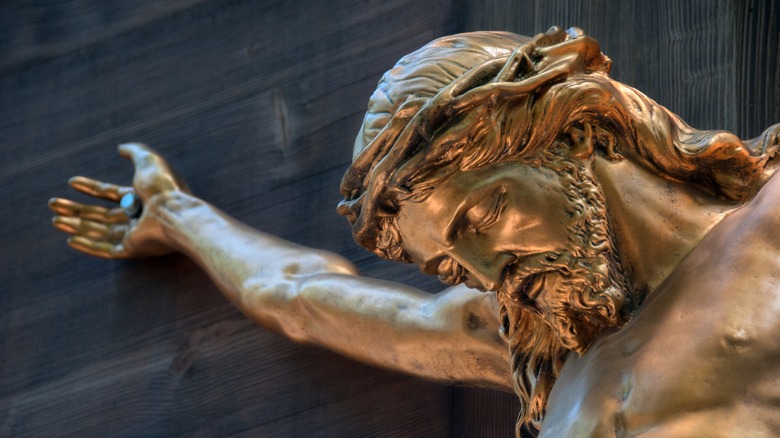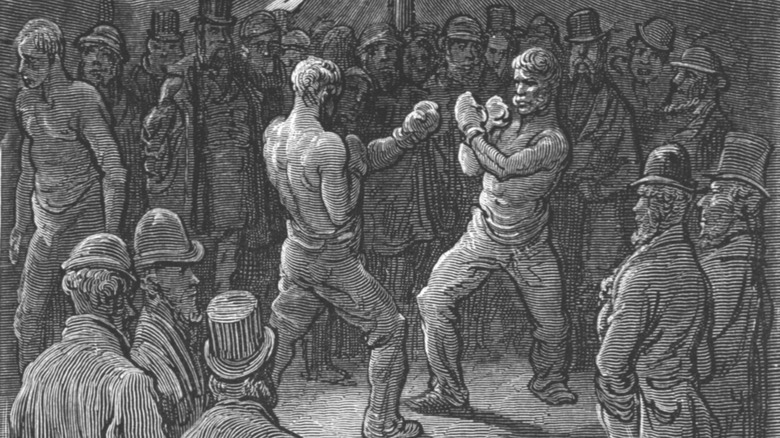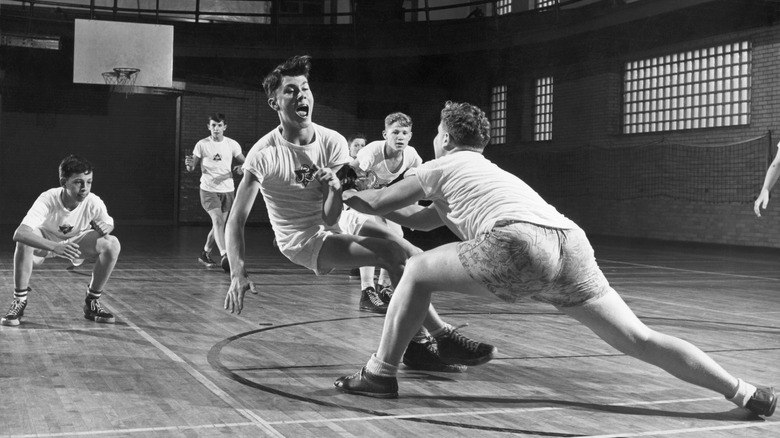What Is Muscular Christianity And What Do Followers Believe?
In the 19th and early 20th centuries, many fervent Christians believed that Christianity had lost its appeal among young men, and something needed to be done about it. Muscular Christian Robert Warren Conant complained in his 1904 work "The Manly Christ" that "The statement that the men in Christian countries take less interest in religion than the women requires neither argument nor proof ... The women in attendance always outnumber the men, often by several hundred percent."
Conant, along with many other proponents of Muscular Christianity, argued that Jesus himself was often portrayed as a distinctly feminine figure totally unrelatable to his ideal of a masculine leader of men. Beginning in Victorian England in the 1850s, men like Conant formed the Muscular Christian movement, which sought to reconcile traditional masculine values with the Christian faith, in much the same way that Medieval Chivalry did.
The movement became quite popular in some parts of the U.S. as well, and by far the most famous proponent of the philosophy was super-macho Theodore Roosevelt, according to The Guardian. Above all Muscular Christians were known for treasuring sports, pastimes they believed made men tougher and more moral.
Origins and ethos
The phrase "Muscular Christianity" first appeared in the review of a 19th-century novel written by Charles Kingsley. The phrase was used again a year later to describe another novel by Thomas Hughes, "Tom Brown's School Days" (via Clifford Putney, "Muscular Christianity"). Kingsley in particular was a Christian minister who had some strong objections to various popular strains of Christianity that rejected the physical body. He thought extreme asceticism and celibacy were wrong, and he promoted the idea that a Christian hero was a man of action. Hughe's eponymous hero Tom Brown, on the other hand, was just such a person — an English Boarding School student with a talent for sport.
The development of recreational sports in British schools was key to the development of the Muscular Christian movement. In Victorian Britain, posh private schools in particular had started to emphasize physical fitness as a key component of education. It seemed more vital than ever given the increasingly sedentary lifestyles of the middle classes in industrial Britain. Physical courage was also something to be praised in an age when Britain was engaged in any number of Imperialist adventures across the globe.
Proponents of Muscular Christianity believed that sport could instill young people with various virtues, teaching them to play fairly and with honor. However, physical strength itself was also important. Hughes explained, " ... a man's body is given him to be trained and brought into subjection and then used for the protection of the weak, the advancement of all righteous causes" (via Watson et al, "The Journal of Religion and Society").
Faith and Football
In the U.S. the Muscular Christian movement was once strongly associated with various sports. Basketball, for example, was a product of the Muscular Christian movement, created by James Naismith, who declared that "he could better exemplify the Christian life through sports than in the pulpit" (via Aleteia).
Naismith was working at the YMCA when he first developed the game, an organization that was itself heavily shaped by the movement. Founded in England in 1844, when the popular chain was first created as a place for Christian prayer — not a gym. However, the influence of the Muscular Christian Movement transformed it into a hugely successful place for pumping iron — backed by a Christian ethos.
Football too was once associated with the Muscular Christian philosophy, and it was even promoted by a notable follower of the movement who mused ”there is a precious discipline in danger ... I consider no man educated who is not educated to meet danger, grapple with it, and conquer it. And any system of gymnastics which leaves out danger is an emasculated system” (per the New York Times). Muscular Christianity's most powerful supporter, Theodore Roosevelt, notably defended the game when it was criticized for being too violent. A little bit of risk, he believed, was the perfect way to shape masculine men.


